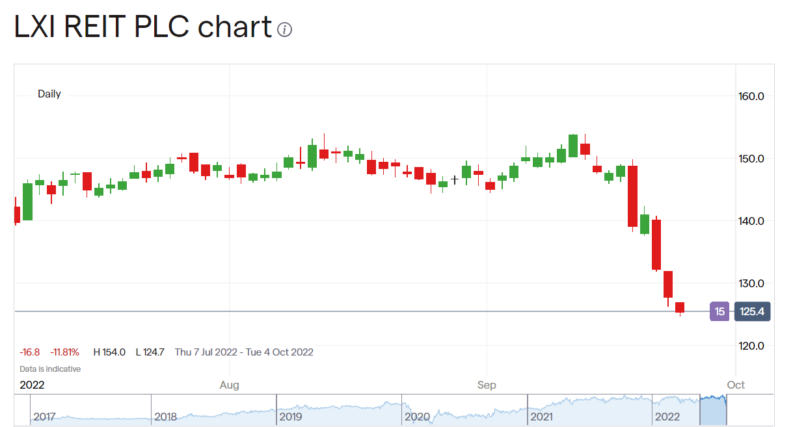Key points:
- LXi REIT has called off the deal to buy Sainsburys stores
- The reason given is stock market volatility
- But is it market volatility, or volatility in LXi REIT shares?
LXi REIT (LON: LXI) has pulled the deal to purchase and lease back Sainsburys (LON: SBRY) stores. Reading between the lines of the announcement it's because the shareholders in LXI thought that the deal with SBRY was a very bad one for LXi REIT shareholders. That's not wholly and exactly how they put it of course but then all corporate announcements require more than a little interpretation into a more useful language.
The announcement came a week back, that LXi would purchase a portfolio of Sainsbury stores for £500 million which would then be leased back to the supermarket chain. This seems like a useful enough deal. Sainsburys shareholders would be able to apply their capital to actual retailing, while those who actively desired to have a stable income stream from rents would have that over in the REIT. There are also tax advantages to separating out the two income stream, one in a normal corporation, the other in a REIT.
However, this does rather depend upon the LXi REIT shareholders also thinking this is a good idea. For they're the people who have to put up the £500 million to buy the stores. This is something they proved remarkably unwilling to do. It looks, from their point of view, as not a good thing in fact. We can see this in the LXi share price:

Also Read: Which Asset Groups To Invest In During Inflation
The actual announcement from LXi (and repeated here by Sainsburys) says “not to proceed further with the portfolio purchase or equity funding given the current stock market volatility.” Which isn't, not quite a wholly, true. There is stock market volatility, yes, but FTSE is down some 3% since the last announcement of the deal. But LXi REIT's share price is down 11% since that last announcement and perhaps 20% from the peak a couple of weeks back. The volatility is, that is, in LXi REIT shares, not the market as a whole.
What this tells us is that the shareholders in LXI are – at best – unconvinced of either the terms of the Sainsbury's deal or perhaps even the very logic of it. Without actually going 'round and asking shareholders individually we can only speculate as to why this is so. What's wrong with the deal from the point of view of LXi shareholders? One idea could simply be that an inflationary environment is not a good time to be owning property – but that's not true. Property's great to hold in an inflationary environment. Another possibility is tha the yield doesn't look good enough. As interest rates rise then the return from owning a property – don't forget, REITs are really about yields, not capital values – faces a higher hurdle. Why own property on a risky yield when safe investments like Gilts are increasing their yields? The relative values of the two therefore change.
Absent such speculation all we can really say here is that LXi shareholders didn't seem to want to put up the £500 million to buy these properties of Sainsburys'. Therefore the deal isn't going to happen.




